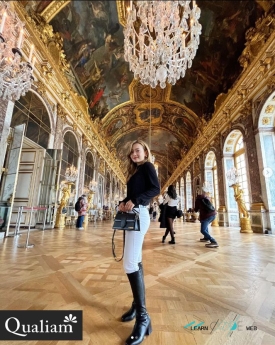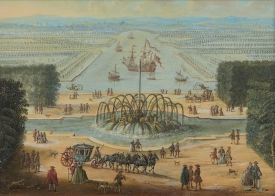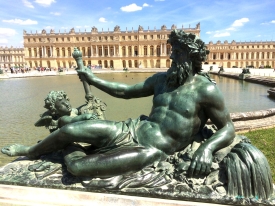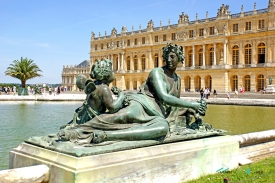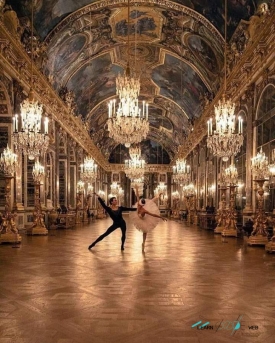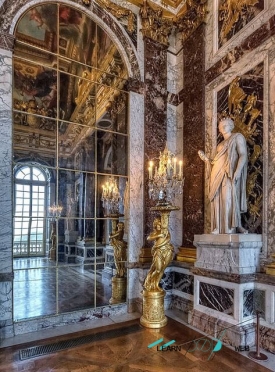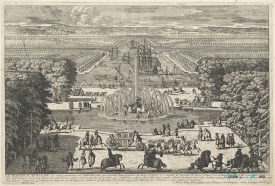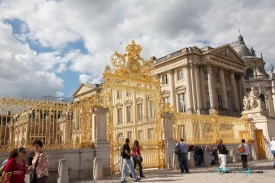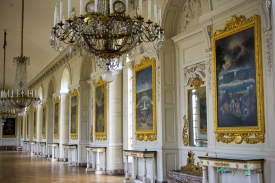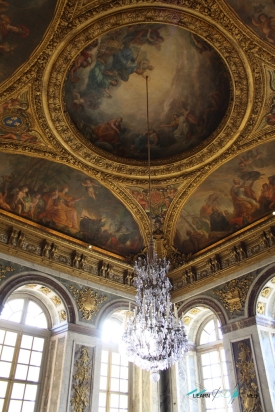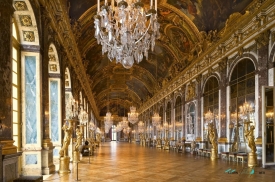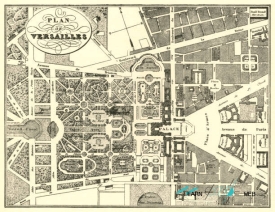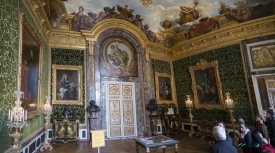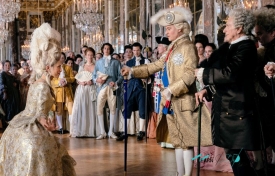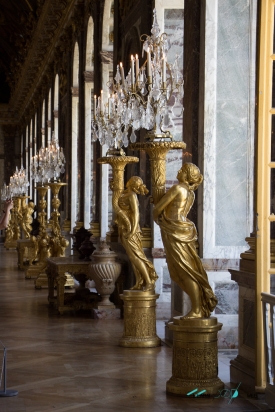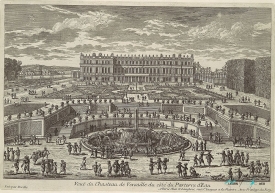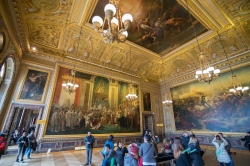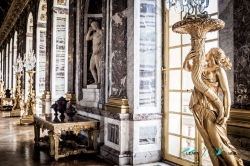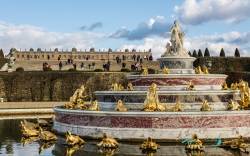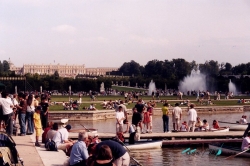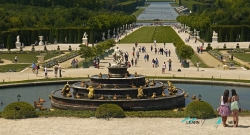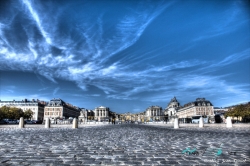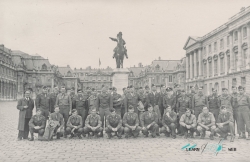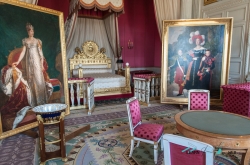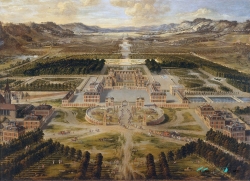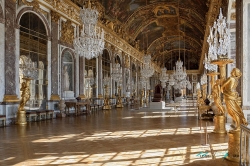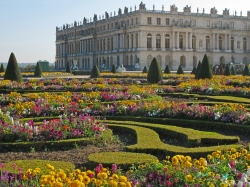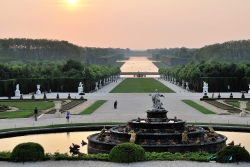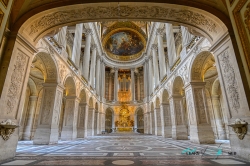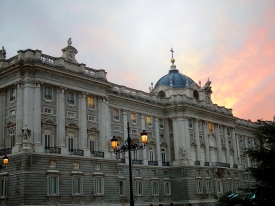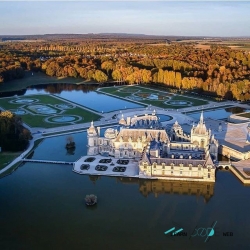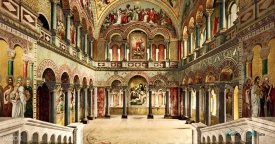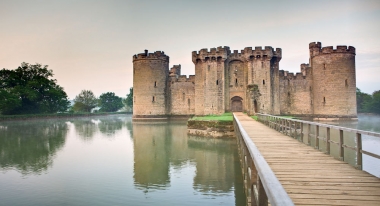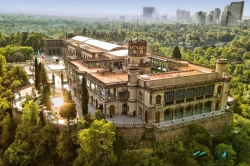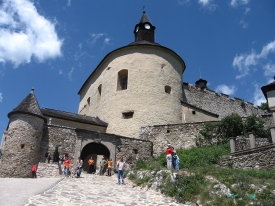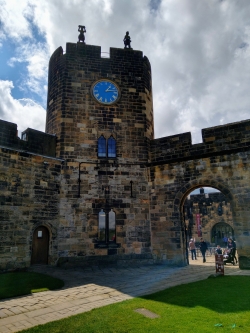ABOUT Palace of Versailles
The Palace of Versailles was the principal royal residence of France from 1682, under Louis XIV, until the start of the French Revolution in 1789, under Louis XVI. It is located in the department of Yvelines, in the region of Île-de-France, about 20 kilometres (12 miles) southwest of the centre of Paris.
A simple hunting lodging and later a small château with a moat occupied the site until 1661, when the first work expanding the château into a palace was carried out for Louis XIV. In 1682, when the palace had become large enough, the king moved the entire royal court and the French government to Versailles.
Some of the palace furniture at this time was constructed of solid silver, but in 1689 much of it was melted down to pay for the cost of war. Subsequent rulers mostly carried out interior remodeling, to meet the demands of changing taste, although Louis XV did install an opera house at the north end of the north wing for the wedding of the future king Louis XVI and Marie Antoinette in 1770.
The palace has also been a site of historical importance. The Peace of Paris (1783) was signed at Versailles, the Proclamation of the German Empire occurred in the Hall of Mirrors, and World War I was ended in the palace with the Treaty of Versailles, among many other events.
The palace is now a historical monument and UNESCO World Heritage site, notable especially for the ceremonial Hall of Mirrors, the jewel-like Royal Opera, and the royal apartments; for the more intimate royal residences, the Grand Trianon and Petit Trianon located within the park; the small rustic Hameau (Hamlet) created for Marie Antoinette; and the vast Gardens of Versailles with fountains, canals, and geometric flower beds and groves, laid out by André le Nôtre.
The Palace was stripped of all its furnishings after the French Revolution, but many pieces have been returned and many of the palace rooms have been restored.
In 2023 the Palace of Versailles received almost 15 million visitors, making it the second-most visited monument in the Île-de-France region, just behind the Louvre and ahead of the Eiffel Tower.
The Gardens: The gardens of Versailles are one of the most famous and beautiful gardens in the world. They cover over 800 hectares and include fountains, sculptures, and water features.
The Trianon Palaces: The Trianon Palaces are a set of smaller palaces located on the grounds of Versailles. They include the Grand Trianon, the Petit Trianon, and the Queen's Hamlet.
The Museum of the History of France: This museum is located in the south wing of the palace and features exhibitions that showcase the history of France.
The Musical Fountains Show: During the summer months, visitors can attend a special musical fountain show in the gardens. The fountains are synchronized to classical music, creating a breathtaking visual and auditory experience.
The Grandes Eaux Nocturnes: Another evening show that takes place during the summer months, the Grandes Eaux Nocturnes is a nighttime spectacle featuring illuminated fountains and water features set to music.
Overall, visiting the Château de Versailles is an unforgettable experience that offers a glimpse into the opulent world of the French monarchy and the grandeur of 18th-century France.
A simple hunting lodging and later a small château with a moat occupied the site until 1661, when the first work expanding the château into a palace was carried out for Louis XIV. In 1682, when the palace had become large enough, the king moved the entire royal court and the French government to Versailles.
Some of the palace furniture at this time was constructed of solid silver, but in 1689 much of it was melted down to pay for the cost of war. Subsequent rulers mostly carried out interior remodeling, to meet the demands of changing taste, although Louis XV did install an opera house at the north end of the north wing for the wedding of the future king Louis XVI and Marie Antoinette in 1770.
The palace has also been a site of historical importance. The Peace of Paris (1783) was signed at Versailles, the Proclamation of the German Empire occurred in the Hall of Mirrors, and World War I was ended in the palace with the Treaty of Versailles, among many other events.
The palace is now a historical monument and UNESCO World Heritage site, notable especially for the ceremonial Hall of Mirrors, the jewel-like Royal Opera, and the royal apartments; for the more intimate royal residences, the Grand Trianon and Petit Trianon located within the park; the small rustic Hameau (Hamlet) created for Marie Antoinette; and the vast Gardens of Versailles with fountains, canals, and geometric flower beds and groves, laid out by André le Nôtre.
The Palace was stripped of all its furnishings after the French Revolution, but many pieces have been returned and many of the palace rooms have been restored.
In 2023 the Palace of Versailles received almost 15 million visitors, making it the second-most visited monument in the Île-de-France region, just behind the Louvre and ahead of the Eiffel Tower.
Some of the things you can look for and experience when visiting the palace:
The Palace: The palace itself is a grand masterpiece of French architecture and design. You can explore the many rooms and halls, including the famous Hall of Mirrors, the King's and Queen's State Apartments, and the Royal Chapel.The Gardens: The gardens of Versailles are one of the most famous and beautiful gardens in the world. They cover over 800 hectares and include fountains, sculptures, and water features.
The Trianon Palaces: The Trianon Palaces are a set of smaller palaces located on the grounds of Versailles. They include the Grand Trianon, the Petit Trianon, and the Queen's Hamlet.
The Museum of the History of France: This museum is located in the south wing of the palace and features exhibitions that showcase the history of France.
The Musical Fountains Show: During the summer months, visitors can attend a special musical fountain show in the gardens. The fountains are synchronized to classical music, creating a breathtaking visual and auditory experience.
The Grandes Eaux Nocturnes: Another evening show that takes place during the summer months, the Grandes Eaux Nocturnes is a nighttime spectacle featuring illuminated fountains and water features set to music.
Overall, visiting the Château de Versailles is an unforgettable experience that offers a glimpse into the opulent world of the French monarchy and the grandeur of 18th-century France.
The Best Pictures of Palace of Versailles
Videos of Palace of Versailles




![[SUB]【美術散歩】ヴェルサイユ グランアパルトマン 宮殿散歩](https://i1.ytimg.com/vi/KQ954SolSzs/mqdefault.jpg)






